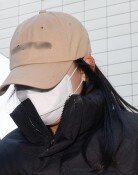[Diplomatic News] Another Diplomacy Option
[Diplomatic News] Another Diplomacy Option
Posted May. 12, 2006 02:59,
The topic is nations. However, private scholars are drawing interest by attempting to elevate each sides understanding of the others policy through academic interchange, known as Second Diplomacy (Track Two).
On May 1 and May 2, Washington D.C. was the test center for the new Track 2 Diplomacy Seoul-Washington forum. This is because there is a great differentiation between the scholars who led the forum and those personalities and tendencies of the preexisting Korean-U.S. diplomacy scholarship.
The forum will be held by the Sejong Research Center and the Brookings Research Center with the aid of Korea Foundation, alternating each year between Seoul and Washington.
Lim Dong-won, chairman of the board of directors of the Sejong Foundation was appointed president, Baek Hak-soon, Sejong Research Center research director was appointed secretary-general, and participants included Yang Seong-cheol, a past Korean ambassador to the United States, Moon Jeong-in international security advisor, and Park Geon-yeong, Catholic University professor. Within Korea it was noted that they were scholars who supported the sunshine policy.
Director Baek stated, In 1998, after seeing the report by former American Secretary of Defense William Perry (Perry Process), I felt the necessity of this sort of scholarly meeting. After he noted that most of the people he interviewed in Seoul were proficient in conversational English, the need for a link to explain Korean government countermeasure logic to the United States was evident.
On the American side, participants included important officials such as Michael Green, former White House Asia representative and senior aide, and John Tilleli, former commander of the U.S. Armed Forces stationed in Korea, along with Bruce Cummings, a University of Chicago professor, and Leon Segal, an American Social Science Research Council research committee member.
The former and current State Department assistant secretary delivered a speech at a luncheon that was attended by the American delegation to the six-party talks, including Christopher Hill and James Kelly. Starting next year, Baek plans for a better balance between conservatives and liberals among participants from the Korean side.
In the meantime in Washington, the Heritage Foundation, the American Enterprise Institute (AEI), the Center for Strategic and International Studies (CSIS), and the Brookings Research Center, the major think-tanks, have organically organized a seminar regarding the Korean peninsula. However, the participation of scholars supporting Korean governments North Korea inclusion policies is relatively poor.
Even testifiers at an American congressional hearing related to the Korean peninsula tend to be mostly conservatives. Washington sources say, The situation has arisen because there arent many figures among Korean heavyweight scholars who can explain the governments policies towards North Korea, not because think-tanks or Congress are conservative oriented.
Because participants in the government and Koreas leading scholars are directed by conservative discourse, many believe that negative views of the governments North Korean policies have been spreading through Washington. Last November, the Sejong Research Center and Georgetown Universitys jointly sponsored academic conference are believed to have planned in this vein also.
Seung-Ryun Kim srkim@donga.com







